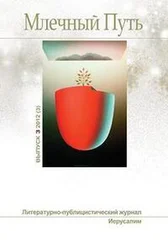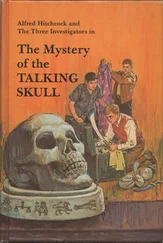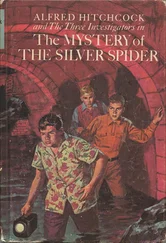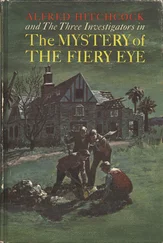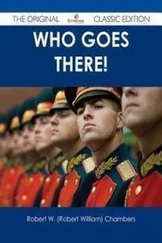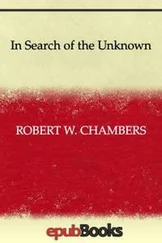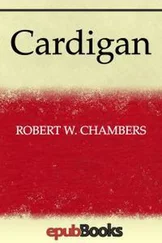Роберт Чамберс - The Mystery of Choice
Здесь есть возможность читать онлайн «Роберт Чамберс - The Mystery of Choice» весь текст электронной книги совершенно бесплатно (целиком полную версию без сокращений). В некоторых случаях можно слушать аудио, скачать через торрент в формате fb2 и присутствует краткое содержание. Год выпуска: 2017, Издательство: epubBooks Classics, Жанр: Ужасы и Мистика, на английском языке. Описание произведения, (предисловие) а так же отзывы посетителей доступны на портале библиотеки ЛибКат.
- Название:The Mystery of Choice
- Автор:
- Издательство:epubBooks Classics
- Жанр:
- Год:2017
- ISBN:нет данных
- Рейтинг книги:3 / 5. Голосов: 1
-
Избранное:Добавить в избранное
- Отзывы:
-
Ваша оценка:
- 60
- 1
- 2
- 3
- 4
- 5
The Mystery of Choice: краткое содержание, описание и аннотация
Предлагаем к чтению аннотацию, описание, краткое содержание или предисловие (зависит от того, что написал сам автор книги «The Mystery of Choice»). Если вы не нашли необходимую информацию о книге — напишите в комментариях, мы постараемся отыскать её.
The Mystery of Choice — читать онлайн бесплатно полную книгу (весь текст) целиком
Ниже представлен текст книги, разбитый по страницам. Система сохранения места последней прочитанной страницы, позволяет с удобством читать онлайн бесплатно книгу «The Mystery of Choice», без необходимости каждый раз заново искать на чём Вы остановились. Поставьте закладку, и сможете в любой момент перейти на страницу, на которой закончили чтение.
Интервал:
Закладка:
"It's all right now," said her father, emphasizing each word with a gentle tap of his pipe–bowl on the table edge; "don't be hard on yourself, Dick, my boy. You'll do yeoman's service yet."
It was nearly midnight, and still we chatted on about the Thermosaurus, the ekaf–bird, and the ool–yllik, eagerly discussing the probability of the great reptile's carcass being in the vicinity. That alone seemed to explain the presence of these prehistoric birds at Pine Inlet.
"Do they ever attack human beings?" I asked.
The professor looked startled.
"Gracious!" he exclaimed, "I never thought of that. And Daisy running about out of doors! Dear me! it takes a scientist to be an unnatural parent!"
His alarm was half real, half assumed; but all the same, he glanced gravely at us both, shaking his handsome head, absorbed in thought. Daisy herself looked a little doubtful. As for me, my sensations were distinctly queer.
"It is true," said the professor, frowning at the wall, "that human remains have been found associated with the bones of the ekaf–bird—I don't know how intimately. It is a matter to be taken into most serious consideration."
"The problem can be solved," said I, "in several ways. One is, to keep Miss Holroyd in the house―"
"I shall not stay in!" cried Daisy indignantly.
We all laughed, and her father assured her that she should not be abused.
"Even if I did stay in," she said, "one of these birds might alight on Master Dick."
She looked saucily at me as she spoke, but turned crimson when her father observed quietly, "You don't seem to think of me, Daisy."
"Of course I do," she said, getting up and putting both arms around her father's neck; "but Dick—as—as you call him—is so helpless and timid."
My blissful smile froze on my lips.
"Timid!" I repeated.
She came back to the table, making me a mocking reverence.
"Do you think I am to be laughed at with impunity?" she said.
"What are your other plans, Dick, my boy?" asked the professor.—"Daisy, let him alone, you little tease!"
"One is, to haul a lot of cast–iron boilers along the dunes," I said. "If these birds come when the carcass floats in, and if they seem disposed to trouble us, we could crawl into the boilers and be safe."
"Why, that is really brilliant!" cried Daisy.
"Be quiet, my child! Dick, the plan is sound and sensible and perfectly practical. McPeek and Frisby shall go for a dozen loads of boilers to–morrow."
"It will spoil the beauty of the landscape," said Daisy, with a taunting nod to me.
"And Frisby will probably attempt to cover them with bill–posters," I added, laughing.
"That," said Daisy, "I shall prevent, even at the cost of my life." And she stood up, looking very determined.
"Children, children," protested the professor, "go to bed—you bother me."
Then I turned deliberately to Miss Holroyd.
"Good–night, Daisy," I said.
"Good–night, Dick," she said, very gently.
V
The week passed quickly for me, leaving but few definite impressions. As I look back to it now I can see the long stretch of beach burning in the fierce sunlight, the endless meadows, with the glimmer of water in the distance, the dunes, the twisted cedars, the leagues of scintillating ocean, rocking, rocking, always rocking. In the starlit nights the curlew came in from the sand–bars by twos and threes; I could hear their faint call as I lay in bed thinking. All day long the little ring–necks whistled from the shore. The plover answered them from distant lonely inland pools. The great white gulls drifted like feathers upon the sea.
One morning, toward the end of the week, I, strolling along the dunes, came upon Frisby. He was bill–posting. I caught him red–handed.
"This," said I, "must stop. Do you understand, Mr. Frisby?"
He stepped back from his work, laying his head on one side, considering first me, then the bill that he had pasted on one of our big boilers.
"Don't like the colour?" he asked. "It goes well on them boilers."
"Colour! No, I don't like the colour either. Can't you understand that there are some people in the world who object to seeing patent–medicine advertisements scattered over a landscape?"
"Hey?" he said perplexed.
"Will you kindly remove that advertisement?" I persisted.
"Too late," said Frisby; "it's sot."
I was too disgusted to speak, but my disgust turned to anger when I perceived that, as far as the eye could reach, our boilers, lying from three to four hundred feet apart, were ablaze with yellow and red posters, extolling the "Eureka Liver Pill Company."
"It don't cost 'em nothin'," said Frisby cheerfully; "I done it fur the fun of it. Purty, ain't it?"
"They are Professor Holroyd's boilers," I said, subduing a desire to beat Frisby with my telescope. "Wait until Miss Holroyd sees this work."
"Don't she like yeller and red?" he demanded anxiously.
"You'll find out," said I.
Frisby gaped at his handiwork and then at his yellow dog. After a moment he mechanically spat on a clamshell and requested Davy to "sic" it.
"Can't you comprehend that you have ruined our pleasure in the landscape?" I asked more mildly.
"I've got some green bills," said Frisby; "I kin stick 'em over the yeller ones―"
"Confound it!" said I, "it isn't the colour!"
"Then," observed Frisby, "you don't like them pills. I've got some bills of the 'Cropper Bicycle,' and a few of 'Bagley, the Gents' Tailor―'"
"Frisby," said I, "use them all—paste the whole collection over your dog and yourself—then walk off the cliff."
He sullenly unfolded a green poster, swabbed the boiler with paste, laid the upper section of the bill upon it, and plastered the whole bill down with a thwack of his brush. As I walked away I heard him muttering.
Next day Daisy was so horrified that I promised to give Frisby an ultimatum. I found him with Freda, gazing sentimentally at his work, and I sent him back to the shop in a hurry, telling Freda at the same time that she could spend her leisure in providing Mr. Frisby with sand, soap, and a scrubbing brush. Then I walked on to my post of observation.
I watched until sunset. Daisy came with her father to hear my report, but there was nothing to tell, and we three walked slowly back to the house.
In the evenings the professor worked on his volumes, the click of his type–writer sounding faintly behind his closed door. Daisy and I played chess sometimes; sometimes we played hearts. I don't remember that we ever finished a game of either—we talked too much.
Our discussions covered every topic of interest: we argued upon politics; we skimmed over literature and music; we settled international differences; we spoke vaguely of human brotherhood. I say we slighted no subject of interest—I am wrong; we never spoke of love.
Now, love is a matter of interest to ten people out of ten. Why it was that it did not appear to interest us is as interesting a question as love itself. We were young, alert, enthusiastic, inquiring. We eagerly absorbed theories concerning any curious phenomena in Nature, as intellectual cocktails to stimulate discussion. And yet we did not discuss love. I do not say that we avoided it. No; the subject was too completely ignored for even that. And yet we found it very difficult to pass an hour separated. The professor noticed this, and laughed at us. We were not even embarrassed.
Sunday passed in pious contemplation of the ocean. Daisy read a little in her prayer–book, and the professor threw a cloth over his typewriter and strolled up and down the sands. He may have been lost in devout abstraction; he may have been looking for footprints. As for me, my mind was very serene, and I was more than happy. Daisy read to me a little for my soul's sake, and the professor came up and said something cheerful. He also examined the magazine of my Winchester.
Читать дальшеИнтервал:
Закладка:
Похожие книги на «The Mystery of Choice»
Представляем Вашему вниманию похожие книги на «The Mystery of Choice» списком для выбора. Мы отобрали схожую по названию и смыслу литературу в надежде предоставить читателям больше вариантов отыскать новые, интересные, ещё непрочитанные произведения.
Обсуждение, отзывы о книге «The Mystery of Choice» и просто собственные мнения читателей. Оставьте ваши комментарии, напишите, что Вы думаете о произведении, его смысле или главных героях. Укажите что конкретно понравилось, а что нет, и почему Вы так считаете.

